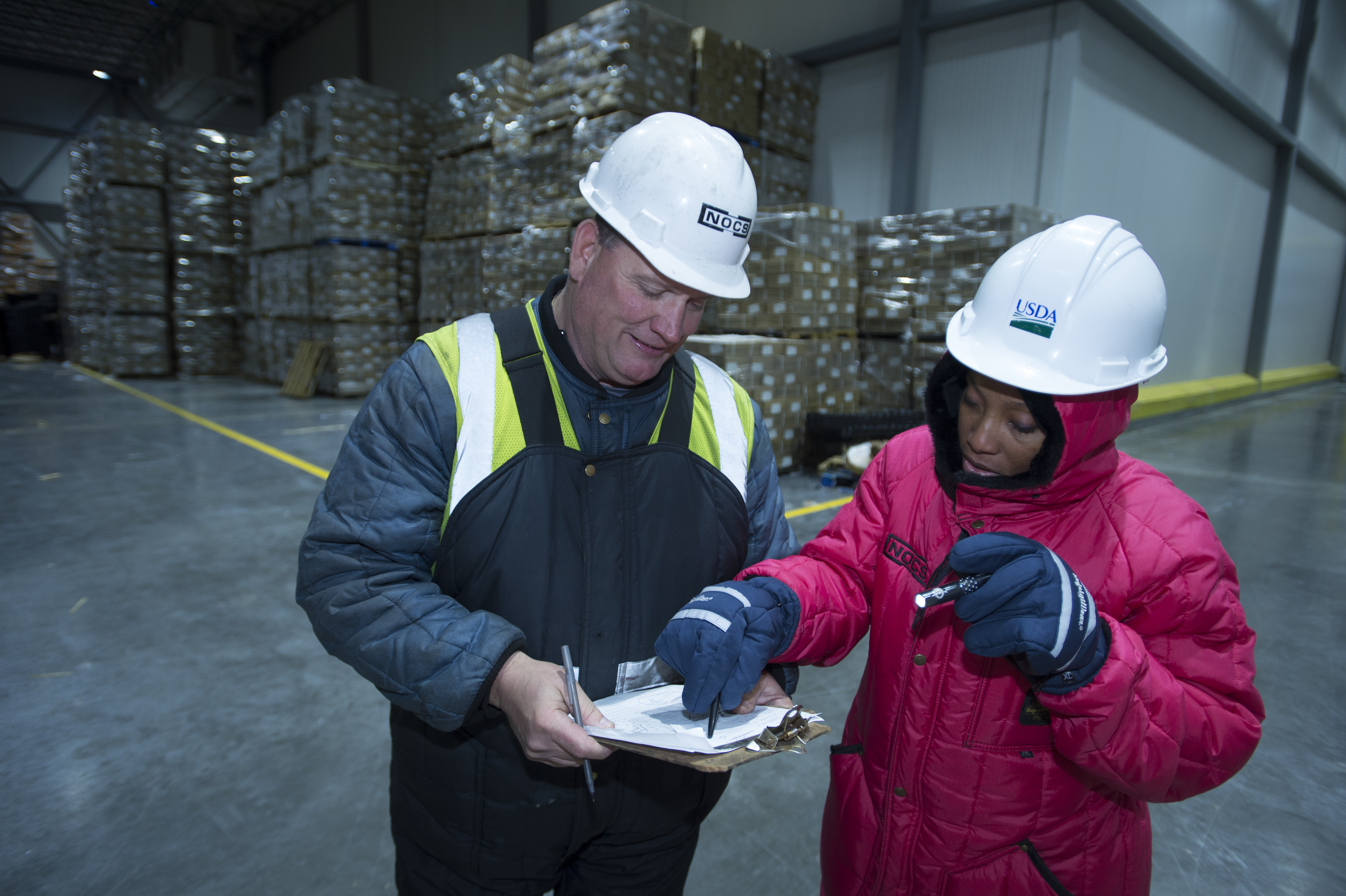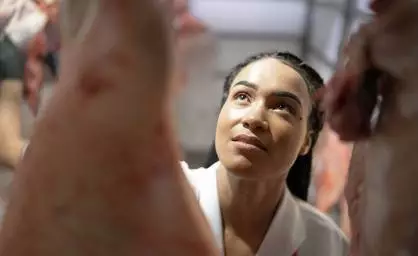
FSIS/ORISE Food Safety Fellowship Program
The U.S. Department of Agriculture’s Food Safety and Inspection Service (FSIS) hires food safety fellows through the Oak Ridge Institute for Science and Education (ORISE) program. Selected students from the ORISE program are working toward their doctorate degrees. They also have an interest in improving food safety and public health.
The food safety fellows collaborate with FSIS scientists to support projects under the agency’s research priorities.
In 2020, FSIS established a new Food Safety Fellowship Program. The goals for this program are:
- Increase outreach to colleges and universities to inform students about the FSIS mission and to promote FSIS as an employer of choice;
- Accomplish our research goals through strengthened partnerships with academia; and
- Educate the next generation of food safety scientists.
Background information for students
The Fellowship is a virtual scientific research opportunity for students to work on projects of interest to FSIS, while working towards their Ph.D., in their home institutions. FSIS has identified several food safety research priorities that support its mission. The participant chooses one of the topics listed on the FSIS Food Safety Research Priorities page and works with FSIS scientists to ensure the goals are achievable within the project timeframe.
This opportunity provides students with an understanding of the type of research that supports FSIS decision making. Students learn how to apply scientific and technical knowledge to ensure the safety of the food supply. During the fellowship, students learn more about career opportunities at FSIS by visiting an FSIS regulated establishment and one of our food safety laboratories. Students also receive training on how to communicate their data to diverse audiences, including FSIS scientific and policy staff, and non-technical audiences. At the end of the year, the students present their findings to FSIS leadership.
Office of Public Health Science
Kristina Barlow
Senior Microbiologist
Microbiological & Chemical Hazards Staff
Labeed Ben-Ghaly
Public Health Specialist, Bioinformatics
Mary Katherine Crews
Public Health Specialist
Microbiology Characterization Branch
Tracy Berutti
Microbiologist
Eastern Laboratory
Tye Boynton, Ph.D.
Staff Officer
Laboratory Regulatory Operations
Louis Bluhm
Director
Laboratory Quality Assurance, Response and Coordination Staff
Johnette Browne-Silva
Microbiologist
Mark Campbell
Microbiologist
Terry Campbell
Supervisory Microbiologist
Eastern Laboratory
Michael Day
Lead Microbiologist
Laboratory Quality Assurance, Response and Coordination Staff
Uday Dessai
Senior Public Health Advisor
Applied Epidemiology Staff
Eric D. Ebel
Senior Veterinary Medical Officer
Risk Assessment and Analytics Staff
Rebecca Fields
Senior Staff Officer
Office of the Executive Associate for Laboratory Services
Eastern Laboratory
Gamola Z. Fortenberry
LCDR, US Public Health Service Commissioned Corps
Epidemiologist, Applied Epidemiology Staff
Janell Kause
Senior Leader for Risk Assessment
Office of the Assistant Administrator
Ryan Matsuda
Lead Chemist
Evelyne Mbandi
Director
Microbiological & Chemical Hazards Staff
Udit Minocha
Microbiologist
Microbiological & Chemical Hazards Staff
Cesar Morales
Supervisory Microbiologist
Microbiology Characterization Branch
Eastern Laboratory
Michael Myers
Supervisory Microbiologist
Eastern Laboratory
Catherine A. Rockwell
CDR, United States Public Health Service
Senior Public Health Advisor
USPHS Commissioned Corps Agency Liaison/ SRCOSTEP Program Manager
Applied Epidemiology Staff
Wayne Schlosser
Senior Veterinarian
Risk Assessment and Analytics Staff
Reid Schuster
Microbiologist
Sheryl Shaw
Director, Applied Epidemiology Staff
Mustafa Simmons
Public Health Specialist (Bioinformatics),
Eastern Laboratory
Kristal J. Southern
Biological Science Information Specialist
Microbiological & Chemical Hazards Staff
Berhanu Tameru
Risk Analyst
Risk Assessment and Analytics Staff
Glenn Tillman
Biological Information Specialist
Microbiological & Chemical Hazards Staff
Isabel Walls
Senior Public Health Advisor and Scientific Liaison
Office of the Assistant Administrator
Jamie Wasilenko
Public Health Specialist (Bioinformatics)
Microbiology Characterization Branch
Eastern Laboratory
Mike Williams
Mathematical Statistician
Risk Assessment and Analytics Staff
William Zaragoza
Senior Microbiologist
Risk Management and Innovations Staff Office of Policy and Program Development
Aaron Beczkiewicz
Food Technologist
Peter Evans
Consumer Safety Officer
Jennifer Green
Senior Staff Officer
Jabari Hawkins
Staff Officer - Food Technologist
John Hicks
Scientific Advisor
Stevie Hretz
Director
Selena Kremer
Senior Microbiologist
Meryl Silverman
Senior Food Technologist
Erika K. Stapp-Kamotani
Senior Veterinary Staff Officer
Jessica L. Brown, PhD, DVM
Veterinary Staff Officer
M. Scott Updike
Biological Scientist
Office of Planning, Analysis and Risk Management
Nelson Clinch
Branch Chief
Operations and Analysis Branch
Stephen Mamber
Senior Data Analyst
Maria Spassova
Acting Branch Chief
Statistical Strategy Branch
Darwin Bandoy, University of California at Davis
Virulence factors and antimicrobial resistance in Salmonella Dublin, 2021
Aaron Beczkiewicz, The Ohio State University
Risk factor models for Salmonella in chicken, 2021
Colette Nickodem, Texas A&M University
Use of bacteriophage to reduce Salmonella in cattle, 2021
Ilya Slizovskiy, University of Minnesota
Metagenomics method to rapidly detect Salmonella, 2021
Aaron Dudley, Alabama A & M University
Effectiveness of antimicrobial packaging to reduce Salmonella in chicken, 2022
Caitlin Karolenko, Oklahoma State University
Validation of a lethality process for Salmonella in biltong, a dried beef product, 2022
Song Kue, University of Georgia
Salmonella ecology in broiler production, 2022
Sharon Nieves-Miranda, Penn State University
Use of whole genome sequencing and bioinformatics to improve characterization of pathogenic E. coli., 2022
Yesutor Soku,Tuskegee University
Antimicrobial resistance in bacteria isolated from siluriformes fish, 2022
Ali Strickland, University of Minnesota
Risk assessment model for Salmonella in ground beef, 2022
Brittani Bedford, Penn State University
Use of Antimicrobial Packaging to Improve the Safety of Fresh Poultry Products, 2023
Kingsley Bentum, Tuskegee University
Bioinformatic tool for screening for non-hydrogen sulfide producing Salmonella, 2023
Azin Farmanfarmaee, University of Georgia
Pasteurization of Dried Egg Powders using Radio Frequency Heating Technology, 2023
Rutwik Joshi, Texas Tech University
Rapid detection of Salmonella using glass microspheres and quantum dots, 2023
Lauren Lee, Texas A & M University
Changes in Salmonella levels in poultry along the supply chain, 2023
Bhaswati Chowdhury, Virginia Tech
Extraction and characterization of Salmonella surface proteins to serve as epitopes for developing a broad-spectrum Salmonella vaccine, 2024
Trushen Shah, University of Connecticut
Potential of Ultra-fine bubble technology for reducing survival of Salmonella and Campylobacter jejuni on poultry, 2024
Reagan Brashears, Texas Tech University
Detection and Biomapping of Highly Pathogenic Salmonella in Pork, 2025
Sheetal Jah, Louisiana State A&M University
Antimicrobial Bio-Sanitizer to Prevent Biofilm Formation by Listeria Monocytogenes and Salmonella, 2025








